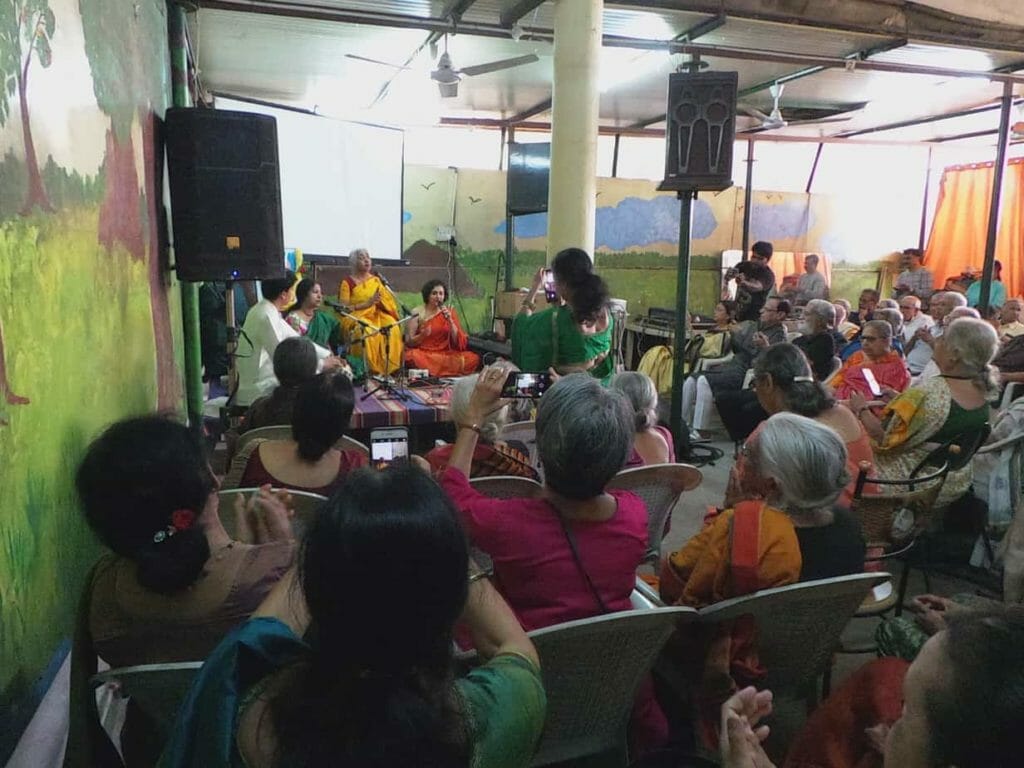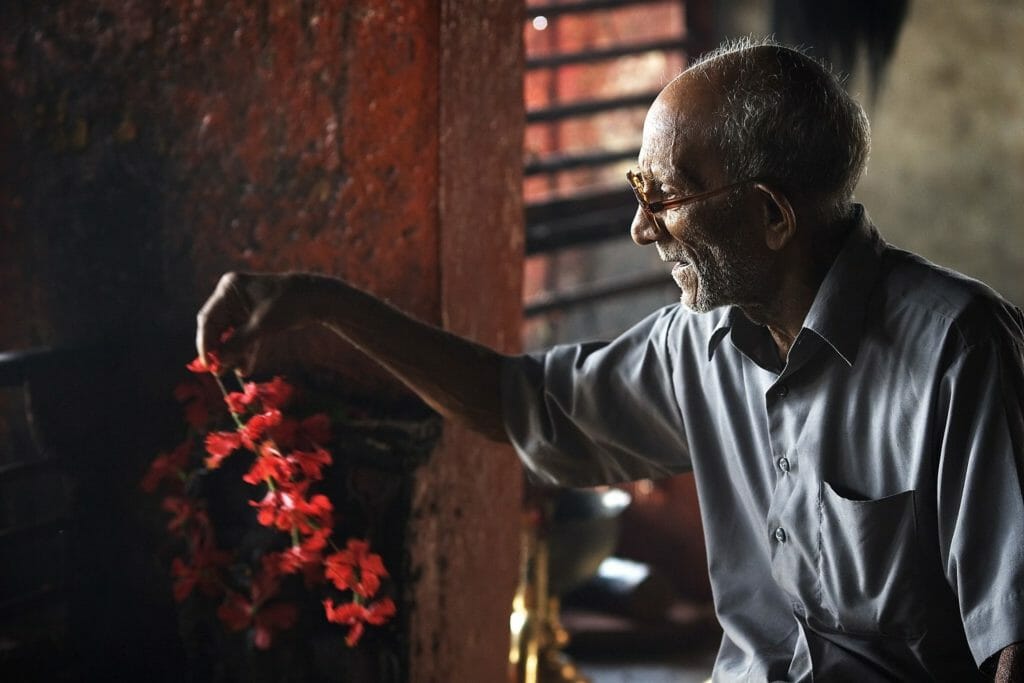The notion of retirement is a rather complicated one. On one hand, it is the long-awaited rest after an extensive, tenured career. On the other, it could mark a decrease in cognitive activity which can lead to an array of ailments such as Dementia, Alzheimer’s and Depression. While a lot of research has gone into the effects of cognitive ageing, very little is being done about how to keep retirees cognitively active.
Additionally, with the advent of modern medicine, individual lifespans continue to increase. This creates a sizable segment of retirees who have a lot of free time. And this ‘Time Affluence’ is at an all-time high. In his book Radical Curiosity: One man’s search for cosmic magic and a purposeful life, Ken Dychtwald, PhD psychologist and gerontologist postulates that “In the next 20 years, the boomer retirement in the US will create 2.5 Trillion hours of free time, and worldwide it will be 50 Trillion hours. We have never had such a Time Affluence before”.
Financial security and the opportunity to be active
After formal retirement from professional careers, many people find themselves with a wide skill set and a wealth of experience but nowhere to apply their expertise. They want to remain active but don’t always know how or where to turn to. And it’s important for them to have a solution because engaging in meaningful activity significantly reduces cognitive decline and its effects.
Furthermore, due to inadequate financial planning, a lot of retirees find themselves with liabilities they didn’t expect to have while they had a steady income, and financial security becomes a concern. It has been found that only a small portion of retired professionals have sufficient savings to maintain the same standard of living beyond 10 years. This, coupled with a lack of cognitive activity makes for an ageing population that isn’t financially secure and feels psychologically unprepared for the effects of ageing.
Read more: The silver lining in Chennai skies
Problems that new retirees face
Transition to a new phase
It is found that a lot of retirees have difficulty adjusting to life after retirement. This is attributed to an array of reasons ranging from boredom, lack of activity, reduced self-respect and a sense of social isolation. One retiree described the experience in the following way: “You’ve lost your friends along the way, you’ve lost your parents, suddenly you’re all by yourself, Your work had kept you busy but suddenly there is a vacuum, even your children have left the nest. Unless you are a very outgoing person, you will end up being very lonely”.
There is a clear sense of loss associated with retirement and reconciling with post-retirement reality is quite difficult for most. Many likened retirement to a “first death”. It is as though many of them weren’t ready and rued the day retirement finally arrived. One retiree noted: “I still have a lot of energy, I have a lot of potential. I won’t just sit back, I want to offer my skills”. It is clear there is a strong desire among retirees to stay engaged with work and have a social life.
Financial insecurity
Retirees also find themselves in uncharted territory when it comes to their finances. Having been so used to having a stable income for decades, there is uncertainty about whether they have a sufficient amount left for their post-retirement lives. As one retiree said: “You’ve just come out of a job and you don’t know how much you will be actively earning. You are confused about interest rates, and just do not know whether your savings will last”.
This is a reflection of the larger theme of inadequate financial planning before one retires. It appears to be common, this feeling of not having enough savings to last through their retirement while maintaining the same standard of living. In some cases, a difficult situation financially may even lead to drastic shifts in lifestyle. As another retiree noted: “There has to be a way to help retirees handle their finances better.”
It was also noted by many that once they stopped becoming principal earners of their households their sense of respect also diminished. Those retirees that depend on others financially find it difficult to retain self-respect. “If you have to depend on people, you stop respecting yourself, you slowly become invisible as you age,” said one retired person.
Social stigma faced by retirees
There also seems to exist a certain degree of stigma around those that have retired. As a result, they are often relegated to the fringes when it comes to meaningful societal engagements. “We want to feel like we are accepted and loved,” said one retiree. Their social currency appears to drastically reduce as they age and this leads to social isolation and lethargy.
Many retirees find themselves serving the role of relics within their own homes, with one saying, “After a point, you start feeling you are not only unable to help others, but you’re also a burden on others.” This serves as a testimony to the lingering feeling among retirees that they no longer add value to society, and are also imposing on those around them.
It is abundantly clear that retirees require a solution to help keep themselves cognitively active, financially secure as well as feeling socially engaged. This sentiment was clear amongst all those we interviewed. “My daughter isn’t happy with my adventurous nature. She thinks I should sit at home and be with the grandchildren but I don’t agree. I need to be active as long as I am on this earth,” said one respondent.
Read more: What we need to keep our senior citizens safe, healthy and happy
The way forward for retirees
Organisations like WisdomCircle, a Bengaluru-based start-up, are trying to address these and other issues pertaining to retirees by providing them meaningful work opportunities. This will not only help them earn supplemental income but more importantly, keep them cognitively active.
Interactions with retirees clearly show that a significant number of them are keen to give back to organisations and society but in a part-time capacity. They want to share their wisdom and skills, but in a way that aligns with their desire to spend more time at home or on other interests, and they want to be fairly compensated for the value they bring.
Such opportunities do exist, but perhaps not widely enough. Organisations have found value in hiring skilled retirees as consultants, but we need to create many more of these roles. Most of these opportunities don’t even require retirees to re-skill too much as they are not full-time responsibilities and thus don’t need the retiree to be accountable for organisational goals.
It would be a shame for such a large segment of society with skills and exposure amassed over decades to remain inactive when they can be kept active and contribute meaningfully in some capacity. More needs to be done to keep retirees engaged and feeling valued within our communities as well as to protect them from the harmful effects of cognitive decline.
Note: The authors are part of the founding team of Wisdom Circle, a startup helping retired professionals find meaningful roles. This article is based on interviews conducted with a diverse range of people in India over the age of 50, across gender, class, and occupation. The interviews were done on the promise of confidentiality. The names of the interviewees can’t be disclosed due to privacy agreements with them. This was internal research, and the disclosure agreement allows sharing thxe results but not the identity of the respondents.


Heartiest Congratulations to the founding team members of WISDOM CIRCLE.
The idea is indeed a noble one and we need to spread to many more retired personnel about such a nice platform.
I am 68 and working as a consultant for an NGO in New Delhi. Am passionate about social service and will be happy and privileged to support the cause. Will be sending a brief article.
Thanks and best regards
Sqn Ldr C Shankar
Veteran
Mob 9567658324